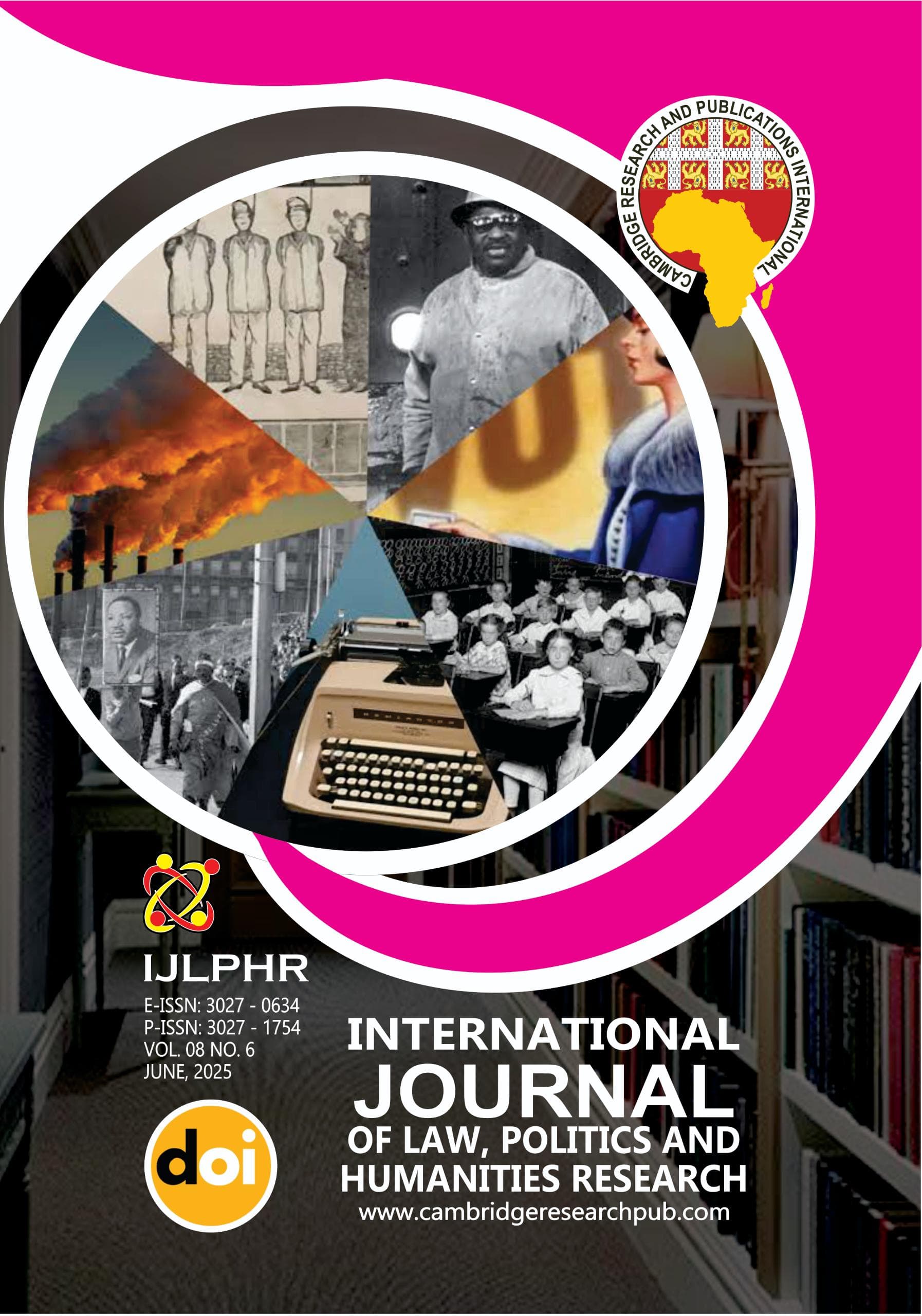PARTY STRUCTURES AND WOMEN'S REPRESENTATION IN NIGERIA’S NATIONAL ASSEMBLY (1999–2023)
Main Article Content
Abstract
This study investigates how political party structures in Nigeria have influenced women’s representation in the National Assembly between 1999 and 2023. Employing a descriptive survey design with a mixed-methods approach, the research integrates structured questionnaires and document analysis to examine nomination processes, internal democracy, and cultural constraints within parties. A sample of 398 respondents from Abuja’s political and academic institutions, including National Assembly members, INEC officials, civil society organizations, and academicians was drawn using Yamane’s formula and proportional sampling. Findings reveal systemic gender biases embedded in opaque nomination processes, financial exclusions, weak party reforms, and enduring patriarchal ideologies. These constraints, often reinforced by cultural and religious norms, continue to suppress women’s access to political leadership. The study underscores the limitations of symbolic affirmative action and ineffective party reforms. Drawing from institutional theory and global experiences, the research advocates enforceable gender quotas, comprehensive internal party reforms, and socio-cultural reorientation as critical steps toward gender-inclusive governance in Nigeria.
Downloads
Article Details
Issue
Section

This work is licensed under a Creative Commons Attribution 4.0 International License.




